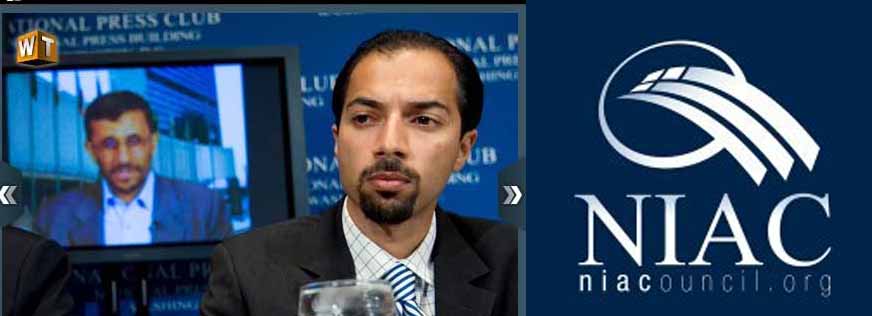NIAC Distorts Court Rulings after Losing Appeal
Feb 23rd, 2015Hamid Yazdan Panah, February 23, 2015
The National Iranian American Council or NIAC, received a final blow to what little legitimacy it had left this past week, following a final ruling by the United States Court of Appeals for the District of Columbia. The ruling was based on an appeal filed by NIAC, which challenged a District Court’s decision to award Hassan Daioleslam $183,480 in monetary sanctions based on NIAC’s conduct during trial.
The sanctions against NIAC came after their lawsuit against Iranian journalist Hassan Daioleslam was dismissed by the District court. Not only was NIAC’s own lawsuit thrown out, but they received monetary sanctions for their behavior in the court. According to the judicial opinion NIAC:
“ engaged in a disturbing pattern of delay and intransigence. Seemingly at every turn, NIAC and Parsi deferred producing relevant documents, withheld them, or denied their existence altogether. Many of these documents went to the heart of Daioleslam’s defense. The Appellants’ failure to produce documents in a timely manner forced Daioleslam—whom they had haled into court—to waste resources and time deposing multiple witnesses and subpoenaing third parties for emails the Appellants should have turned over. Even worse, the Appellants also misrepresented to the District Court that they did not possess key documents Daioleslam sought. Most troublingly, they flouted multiple court orders”
It appears that NIAC has extended its policy of dishonesty and duplicity into the courtroom, and is now paying the price. Here are some of the highlights of the conduct that NIAC was sanctioned for.
- NIAC altered 78 calendar entries shortly before handing them over to the court, including two-thirds of those in Parsi’s calendar.
- NIAC produced virtually no documents from Babak Talebi’s NIAC email address in response to Daioleslam’s production requests. After the court ordered NIAC to search its servers, NIAC located about 8,000 of his emails, but produced only 89 as relevant, and withheld the rest as not relevant. The District Court ordered NIAC to turn over Talebi’s emails “consistent with its discovery obligations. NIAC then produced about 2,500 additional Talebi emails. The District Court decided to review the emails itself in camera. After review, the court held in an April 5, 2011 order that NIAC had “totally failed” to assess the Talebi emails for responsiveness. The court observed that many were plainly responsive to Daioleslam’s requests for lobbying-related documents, including an email from Talebi explaining that NIAC “can ‘advocate’ but not ‘lobby’” and an explanation of NIAC’s “seven ingredients to influence lawmakers.”
- Because of NIAC’s failure to produce relevant documents in response to his requests for production, Daioleslam also subpoenaed a series of third parties for documents in their custody. These subpoenas turned up multiple relevant documents NIAC had failed to produce, including a discussion of legal restrictions on lobbying by nonprofits, emails Parsi wrote to a National Security Council director, emails coordinating a congressional briefing, communications NIAC exchanged with its expert about NIAC events on Capitol Hill and meetings with foreign officials, and 168 emails NIAC received from Iranian-Americans expressing negative views of the organization.
- Multiple instances in which NIAC refused to hand over data, and information before Daioleslam was set to conduct depositions with key individuals in the case, thus preventing meaningful access to relevant evidence.
- The District Court described the NIAC’s withholding of relevant emails as “indefensible.” It noted that NIAC and Parsi made no attempt to explain the omission, which in any event it described as “inexplicable.”
Amazingly, NIAC continued its policy of dishonesty, by blatantly distorting the ruling, characterizing the decision as being in regards to “cost sharing” as opposed to sanctions, two very different matters. NIAC claimed, that it “won on several issues”.
Despite being so heavily sanctioned for withholding evidence, NIAC claimed that Daioleslam engaged in a “legal fishing expedition” and “backtracking from them once confronted in court” yet it was NIAC’s misconduct during discovery that prevented Daioleslam from obtaining access to key pieces of evidence. Daioleslam consistently maintained that he believed his allegations against NIAC were true, and continues to write extensively on NIAC to this day.
If there is any question as to the truth of what occurred, one need only read the judicial opinions, which NIAC refuses to cite, in order to understand the extent to which NIAC was embarrassed in a lawsuit it initiated. The earlier court ruling, which dismissed NIAC’s lawsuit based on summary judgement, also sheds light on how unprepared NIAC was for the lawsuit, leading many to believe that they had simply initiated the action in order to intimidate Daioleslam.
The degree to which NIAC is able to unabashedly distort the ruling is both shocking and disturbing. However, the apple does not fall far from the tree, and their Orwellian policy of distorting the truth is reminiscent of the regime in Tehran.
Hamid Yazdan Panah is an Iranian-American human rights activist and attorney focused on immigration and asylum in the San Francisco Bay Area.


